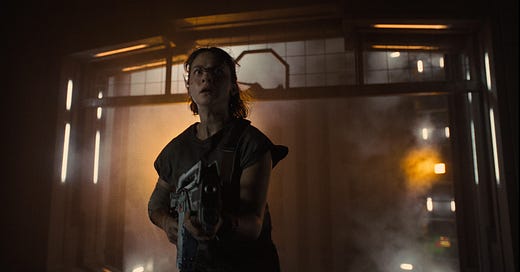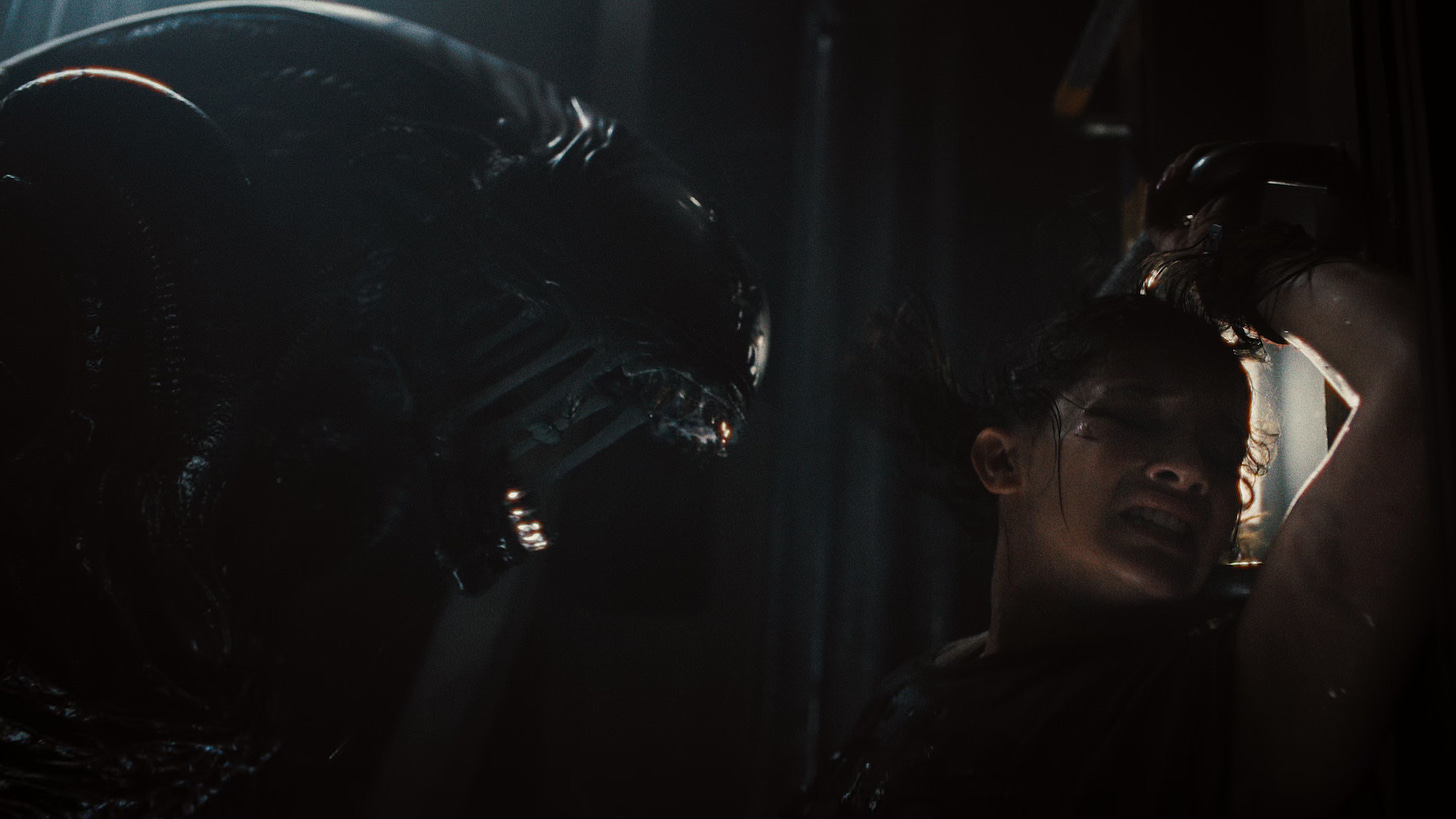'Alien: Romulus' and Franchise Fetishization
I liked 'Alien: Romulus' but not as much as 'Alien: Romulus' likes other 'Alien' movies.
The Alien franchise is curious in that it’s a franchise with no franchise identity. The “no tone” tone was set by the transformation of sci-fi horror in Ridley Scott’s original 1979 film into James Cameron’s sci-fi action movie Aliens in 1986. Two legendary directors made two classic movies set in the same world featuring the same protagonist (Sigourney Weaver’s Lt. Ellen Ripley) but in two distinct genres. Since then, the Alien series has been marked by how each installment tries to adhere to an idea of what an Alien movie should be yet remaining distinct from other entries. Alien 3 is a far cry from Aliens and Alien: Resurrection is a far cry from Alien 3. Even when Scott returned to the series with his prequel movies Prometheus and Alien: Covenant, there was a sense that Scott’s interest wasn’t in recreating the feeling of his 1979 movie as much as he wanted to make movies about a villainous android (Michael Fassbender’s David) and that the only way to get the budget he needed was to set them in the Alien universe.1
So the idea of “What does an Alien movie look like,” doesn’t have a set answer, and that leaves two roads for the new Alien movie, Fede Alvarez’ Alien: Romulus. Either he could follow tradition and try to scope out an entirely new vision for an Alien movie or he could try to canonize all that came before into a cohesive picture. Alvarez opts for the latter, and to his credit, he largely succeeds.
For about two-thirds of Alien: Romulus, the film feels like a direct successor to Scott’s Alien but with today’s CGI tools. The movie is set after the events of Alien but before Aliens, and follows a group of orphaned teenagers seeking to get off their mining planet and a life of indentured servitude under the nefarious Weyland-Yutani corporation. They think they’ve found their answer by discovering a derelict ship above the planet. The bad news is that it’s not a ship, but a research station. The worse news is that the station was studying xenomorphs.
Right off the bat, Alvarez and co-writer Rodo Sagayues make two smart decisions. They pared the cast way down from other Alien movies, giving us only six characters (one fewer than the ensemble of the 1979 original). This allows us to identify and invest in the cast rather than just see them as disposable fodder for the xenomorphs. Second, because these are orphans who only know a life of toil in a mine, we don’t expect them to be geniuses. Like the space truckers in the first Alien movie, these are working-class characters as opposed to the scientists of Prometheus who should know better.
From there, the movie feels like a terrific throwback to the haunted house vibes of the original movie until it hits the third act when it feels the need to become almost every Alien movie. These nods range from visual Easter eggs to wholesale plot points from other movies (while you can go into Alien: Romulus cold, rewatching Alien and Prometheus would probably help you out). This attempt to embrace all things Alien leaves Romulus feeling less like a distinctive vision of an alternate history where the franchise followed the tone of the original and instead what we typically get from franchises these days: heaps of fan service.
This rankles a bit because the best way to honor a franchise is simply to tell another good story within the bounds of that series. For a large chunk of its runtime, Romulus does that, and running to the safety of “I understood that reference,” is painfully played out. When Alvarez is throwing loads of face-huggers at our characters or leaning into the unsettling boundaries between androids and humans, those choices feel organic to the story while still showing a love of the other Alien movies. When our female lead, Rain (Cailee Spaeny), is shot like she’s Ripley coming to save Newt in Aliens, it takes us out of the film because Rain isn’t like Ripley, which is fine. It’s like in the third act of Romulus, Alvarez and Sagayues quit trusting their stuff and want to rely on the audience’s fond memories of other movies.
While this isn’t the movie’s greatest sin (I’ll have more on that for paid subscribers in Friday’s newsletter), it’s disappointing because there’s an element of, “This is why we can’t have nice things.” We’re so deeply embedded in IP world that the IP eats its own tail. It’s not enough to simply tell a story within the world of Alien; you need to tell your audience that you too have seen all of the Alien movies. I need filmmakers to stop emphasizing to the audience that we’re all fans. It’s fine if filmmakers want to be fans, but foremost I need them to be creative storytellers rather than marketers reaffirming brand loyalty.
I know there are two Alien vs. Predator movies; the less said of these, the better.






